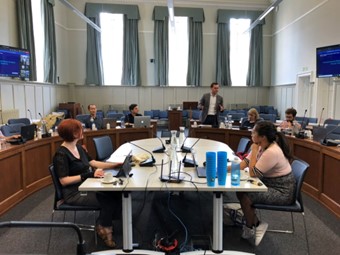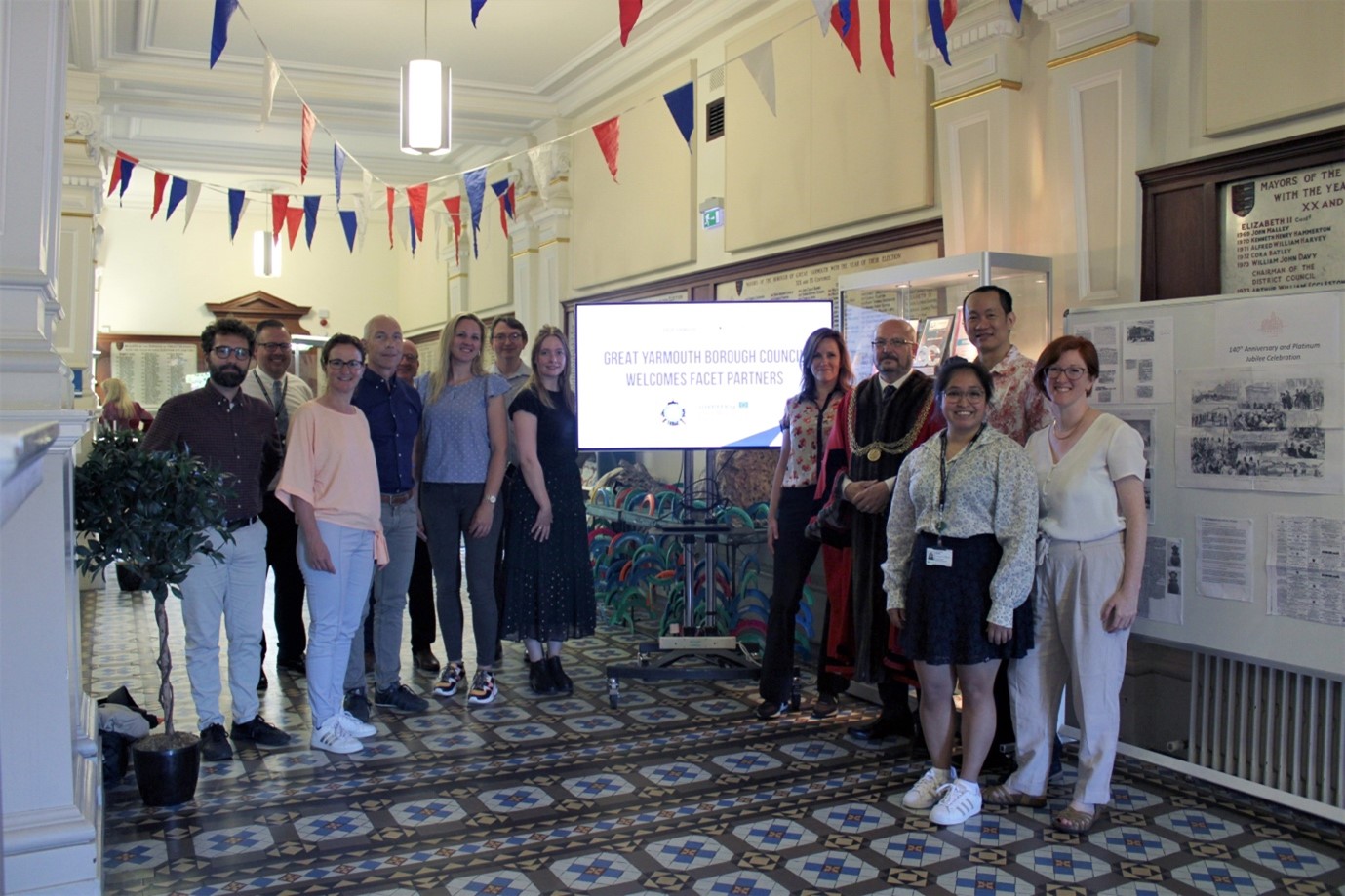 On the 22nd and 23rd of June, the University of Greenwich FACET team led by Associate Professor Jin Hooi Chan, (Dr Anne-Marie Coles, Dr Athena Piterou, Dr Maggie Gao, Dr Lucien von Schomberg, Dr Nadine Leder, Angelo Sciacca), along with all their project partners met in Great Yarmouth, UK, to exchange progress on the project through discussions and presentations. FACET partners were welcomed by the Mayor of Great Yarmouth.
On the 22nd and 23rd of June, the University of Greenwich FACET team led by Associate Professor Jin Hooi Chan, (Dr Anne-Marie Coles, Dr Athena Piterou, Dr Maggie Gao, Dr Lucien von Schomberg, Dr Nadine Leder, Angelo Sciacca), along with all their project partners met in Great Yarmouth, UK, to exchange progress on the project through discussions and presentations. FACET partners were welcomed by the Mayor of Great Yarmouth.
Other than discussing about the management and operation of the project, there was a presentation by one of FACET pilot on gaming and creativity in addressing plastic problem. The Precious Plastic East is the Great Yarmouth’s own local plastic collecting, recycling and manufacturing start-up, inspired by the Precious Plastic model. They are planning on having a local workshop in July which will be a hub of creativity for local groups, the community, creatives, and young people.
During this meeting, Dr Chan and Dr Lucien von Schomberg (BOS) also presented about ‘what motivates entrepreneurs into circular economy action,’ using a B&B De Arend situated on the Belgian coast in the historical city centre of Nieuwpoort. Dr Chan argued for a novel M-M-M (Meaning – Mastery – Membership) framework that entrepreneurs need to nurture in their transition journey to circular businesses. Dr von Schomberg elaborated on how the owner of B&B De Arend achieved it. They built their affection to the environment and sustainability (Meaning) and learning about the footprint and potential of improving the circularity of their business (Mastery). Their journey started well before wining a competition in 2020 organised by FACET (Membership and Network) to receive €10,000 to cover the cost of exploring and designing circular sustainability solutions. The B&B bottled their drinkable water and installed 26 solar panels (along with batteries and 2 hydrogen pumps to generate electricity and heating). They saw their monthly energy bill decrease by €650 with an estimated payback of 8.5 years and 22,500 kWh grid power was saved.
During the meeting, FACET project partners also discussed progress on producing recommendations for the local authorities and finance stakeholders on how they can contribute to the creation of a favourable environment for a circular economy in tourism. To do so, the FACET project is currently developing a number of white papers based on the FACET experience to inform the various destination stakeholders on how to support tourism entrepreneurs.
 One of the key objectives of the FACET project is to assess the transferability of the supported pilots to inform the upscaling of circular solutions in other destinations within and outside the 2 Seas region. Dr Nadine Leder and Dr Chan presented a novel SHIFT (Socio-cultural - Hosting/Administration - Institutional – Finance – Technology) framework to assess the potential of developing similar circular economy pilots in other destinations and countries.
One of the key objectives of the FACET project is to assess the transferability of the supported pilots to inform the upscaling of circular solutions in other destinations within and outside the 2 Seas region. Dr Nadine Leder and Dr Chan presented a novel SHIFT (Socio-cultural - Hosting/Administration - Institutional – Finance – Technology) framework to assess the potential of developing similar circular economy pilots in other destinations and countries.
During the partner meeting, the FACET partners also hosted the Interreg project Blueprint who have provided a presentation and shared inspiring insights from the Blueprint model supporting local authorities to undergo a transition to a circular economy.

